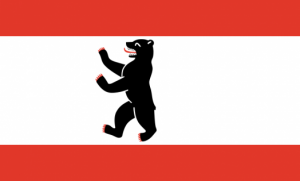Germany’s Bundesländer, or provincial states, are planning to curb the AWP industry, cutting back on the number of machines in operation in the country and reducing the availability of gaming with measures against the arcades.


There are 16 Länder and 15 of them have combined to sign a treaty on gambling. Berlin is one of them. The Länder have largely similar intentions towards arcades and machines, but there are slight variations and the start of their campaign against the industry was planned for five years’ time.
But some of the Länder – Berlin is one of them – began their campaign piecemeal and started some time ago. The first restriction is set for July 1, 2013, and it is coming in Berlin, where the state government plans to reduce the maximum number of machines in one arcade from 12 to eight.
This is being challenged by the gaming machine industry legally, for under federal law in Germany an arcade may have 12 machines, provided that there is a minimum of 12sq.m of space for each one, or a total of 144sq.m.
Much will now depend upon Berlin’s ‘Ordnungsamt,’ which oversees the gaming machine industry in the state’s arcades and bars. German observers believe that it may be passive because it knows that there may be courtroom decisions coming in the following few months which will render its actions illegal and a compensation factor may be forced upon it.
The action by the Berlin state has been described by one leading industry veteran as “the hysterical behaviour of politicians and the media.” Berlin has a particular problem in that it has 200 legitimate arcades and hundreds more illegal ones. These are the ‘café-casinos,’ coffee shops opened by largely immigrant operators with machines, which subsequently installed more machines to the degree where they have effectively changed the use of their premises. These low-grade locations have brought the rest of the industry into some disrepute.
One particularly badly-affected part of Berlin, Neukölln, which has a high concentration of immigrants, is a prime example. The mayor of Neukölln, Heinz Buchkovski, has gone on record as saying: “The problems of Neukölln is not the 17 arcades in my sector of Berlin, but the 363 casino-cafes.” Unfortunately the point is missed by many of the state’s politicians, who pander to a situation inflamed by the press.
The Bundesländer treaty, signed by 15 states in Germany in July of this year, calls for a number of curbs on the coin machine industry. It wants the country’s 10,000 arcades to cease using multi-licensing. As each arcade is only permitted a maximum of 12 machines, there has been a tradition of using more than one licence in the same premises, with each arcade separated by partitions to create a larger location. The biggest has 10 licences.
The Länder want an end to multi-licensing and stringent controls on the spread of arcades, insisting on between 250m (in some Länder) to 500m between each one, banning advertising, tough reductions in opening hours and many other cut-backs. They are also proposing to cut back on the number of machines in the cafes, pubs and bars from a maximum of three machines to only one.
Germany has 240,000 machines and 6,000 operators, with about two-thirds of the machines in the arcades.

